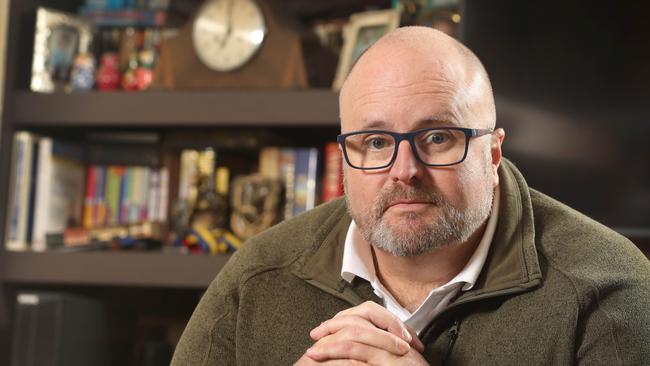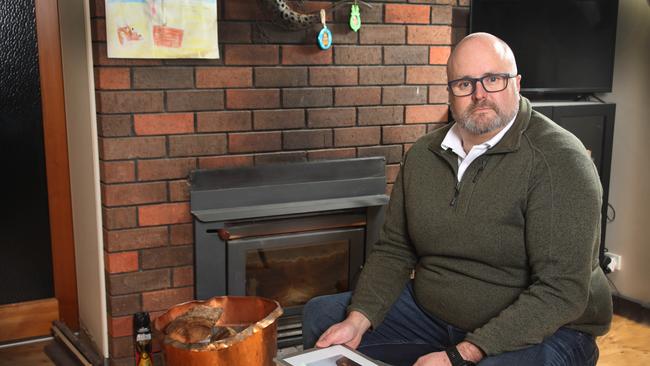Brenton Westley’s plea for law change so his kids can get genetic testing for cancer
Cancer survivor Brenton Westley’s children have been forced to put off a genetic test that could reveal whether they are at risk of a number of cancers because of a controversial rule.

Health
Don't miss out on the headlines from Health. Followed categories will be added to My News.
The lives of Brenton Westley’s children are at risk because a controversial rule allows insurance companies to slug people higher premiums or deny them cover if they have a genetic test.
Today we reveal that insurers are not only punishing consumers with massive premium hikes while their profits soar they are stopping people from having medical tests that could save their lives.
Cancer survivor Mr Westley’s two children have been forced to put off a genetic test that could reveal whether they are at risk of a number of cancers because they fear it would make it impossible for them to afford proper insurance cover.
It means they can’t plan lifesaving preventive action like scans, bowel cancer tests or hysterectomies.
Mr Westley, a 52-year-old public servant from Adelaide, said he was diagnosed with early onset bowel cancer in 2018 and a genetic test revealed he carried genes for Lynch Syndrome.
There is a 50 per cent chance that his two children aged 18 and 21 also carry the same genes that increase the risk of cancer of the colon, endometrium, ovaries, bladder, kidney, brain and pancreas.
“The geneticist advised there is a possibility in the current climate that my children may not be able to get life insurance or any other insurance related to their health condition,” Mr Westley said.
“They could be carrying a cancer gene and not getting treated for it because they’re trying to not get knocked back on insurance,” he said.

The rule could also potentially be a cost to the health system if people refused genetic testing developed preventable cancers that were costly to treat, he said.
A a government inquiry that reported in June found over a third of people who had a genetic test had difficulties in obtaining life insurance products or were forced to pay more.
The report calls on the government to change the law to bring Australia into line with the US, UK, Canada and other countries that ban this type of discrimination.
“We keep seeing stories like Brenton’s come out of the woodwork. It’s just not okay that young, at-risk Australians are being forced to choose between preventive health and their future insurability,” said Dr Jane Tiller Ethical, Legal & Social Adviser, in Genomics at Monash University.
Australians who support a ban on genetic discrimination are being urged to write to their MP ahead of an upcoming debate in federal parliament.
For more information, go here.





